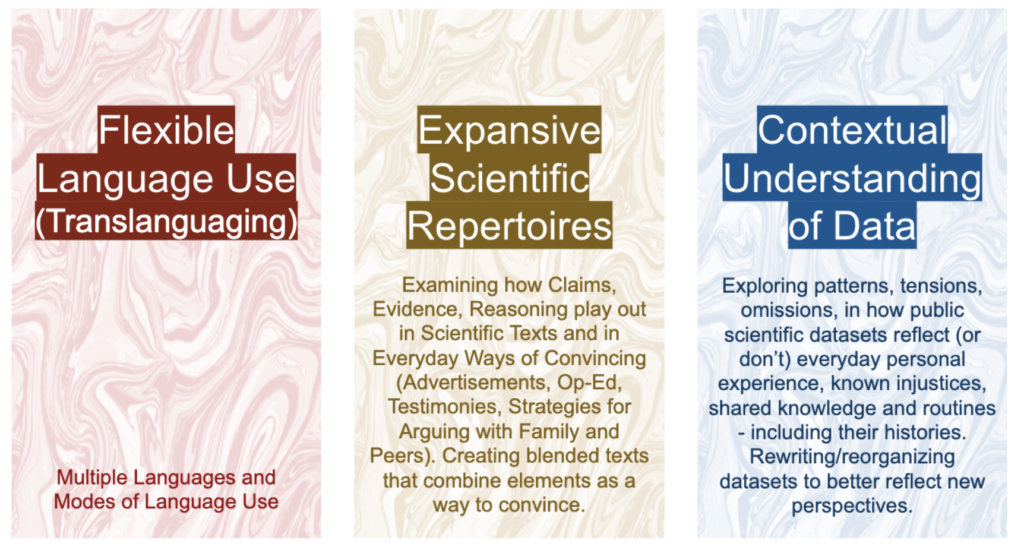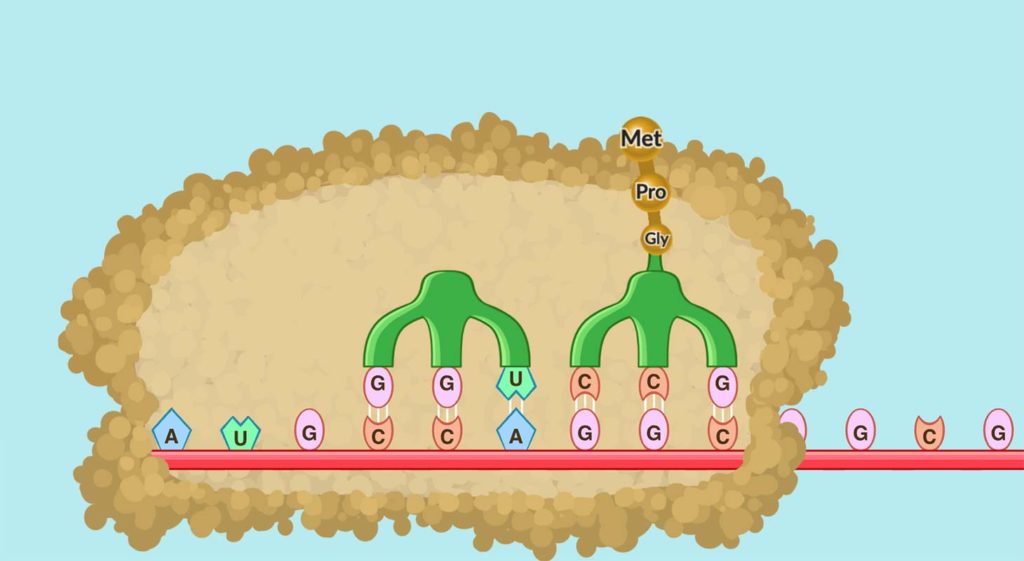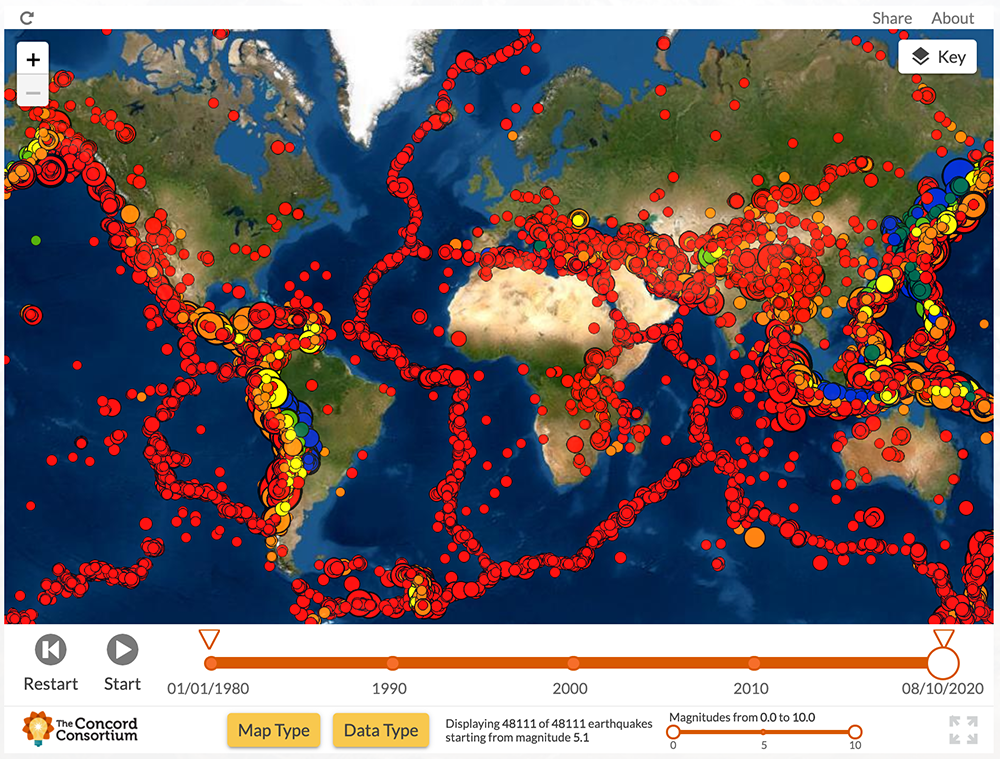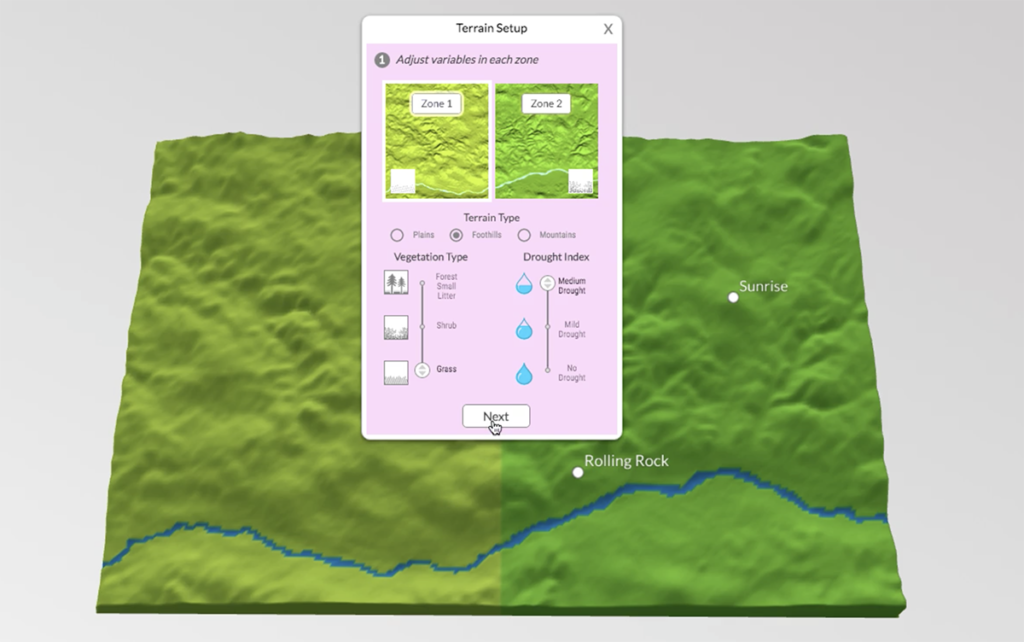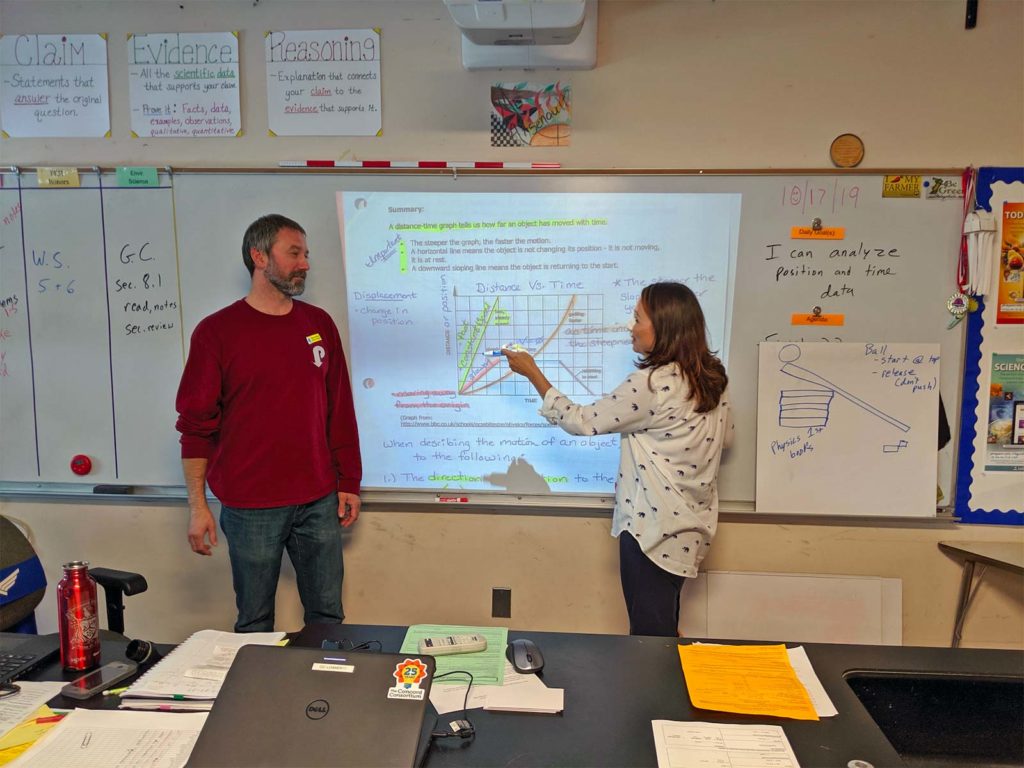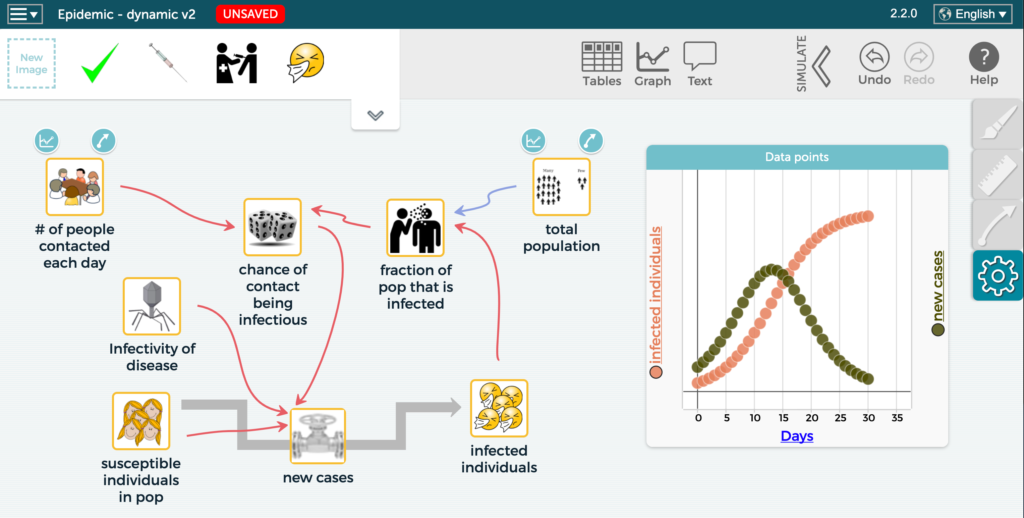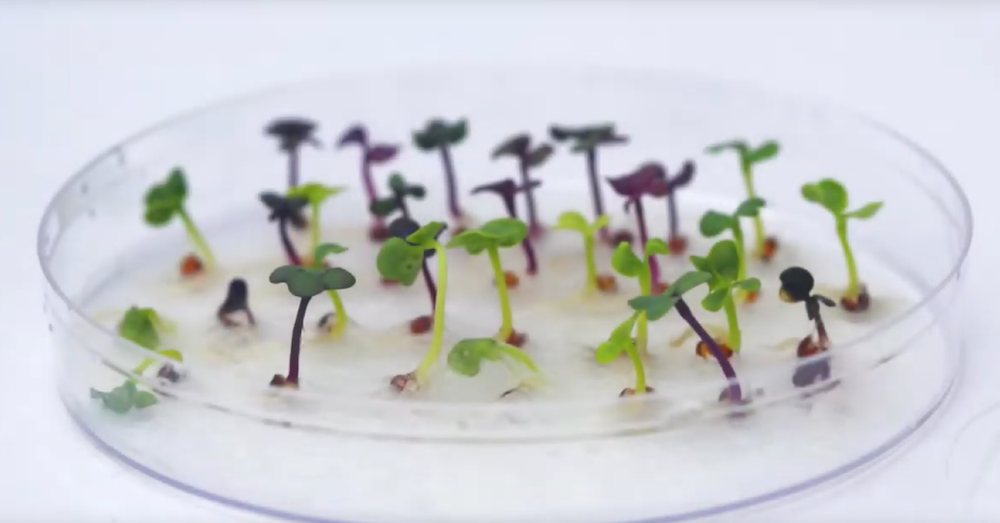Twenty-five middle school teachers from Berkeley, Oakland, and the surrounding areas of northern California recently met online as part of a virtual professional learning workshop called “Telling Data Stories: Scientific Data, Student Experience, and Authorship for Social Justice in Middle School Classrooms.” The workshop was offered by the Writing Data Stories project, a collaboration of […]
As schools across the country begin reopening for the new school year, we are faced with the possibility that the situation we lived through in the spring may become, for a while at least, the “new normal.” Due to the frightening level of the COVID-19 virus in many areas, some school buildings remain closed entirely […]
Now more than ever, teachers are looking for Earth and environmental science activities they can use in any classroom environment, whether it’s face-to-face or remote. We have developed a collection of innovative curriculum and embedded Earth system models and teacher resources, and want to ensure that these resources can be used by any teacher, anywhere. […]
The GeoHazard team contributed to this blog post. We have just wrapped up a week of remote professional learning for our GeoHazard: Modeling Natural Hazards and Assessing Risks project. The goal of GeoHazard is to help students interpret data and understand the factors influencing the progression of and risks associated with natural hazards. Due to […]
Last spring, when a co-teacher in an inclusive physics classroom that is piloting our InquirySpace curriculum in Portsmouth, Rhode Island, asked if she could join our summer teacher workshop, I was elated. I was especially eager to learn how Michelle Murtha would create accommodations to make ninth grade physics accessible for her students on IEPs […]
Understanding responses to the current COVID-19 pandemic and solving other pressing global and local problems requires the ability to develop and use models and apply both system thinking and computational thinking. The Next Generation Science Standards (NGSS) include systems and system models as one of the crosscutting concepts, and developing and using models and using […]
The High-Adventure Science modules, first written in 2011-2013, are each based on a big unanswered question in Earth/environmental science. These six modules include interactive computer-based systems models and real-world data that students use for evidence as they develop scientific arguments. The modules incorporate real-world data from the National Aeronautic and Space Administration, National Oceanic and […]
Let’s face it, three-dimensional teaching takes work. There are disciplinary core ideas (DCI), science and engineering practices (SEP), and crosscutting concepts (CCC) to pack in. A simple new tool may help biology classes reap the benefits of Next Generation Science Standards instruction with big payoffs. The 3D Teacher Moves Table, developed for a groundbreaking webinar […]
“Warm wet winters with westerly winds.” That, says Paul Horwitz, “is the only thing I remember from Mr. Taylor’s sixth grade class. He was my favorite teacher, though.” (Paul was attending the Overseas School of Rome at the time, and the alliteration describes the Mediterranean climate.) To celebrate Teacher Appreciation Week, we shared stories of […]
Note: This blog post was first published on GettingSmart.com. We are living in an extraordinary moment in time. We will remember this global pandemic for decades and longer. Though the events happening now will last in our memories, the many changes that are sure to ripple forward will persist everywhere from our habits to our […]
